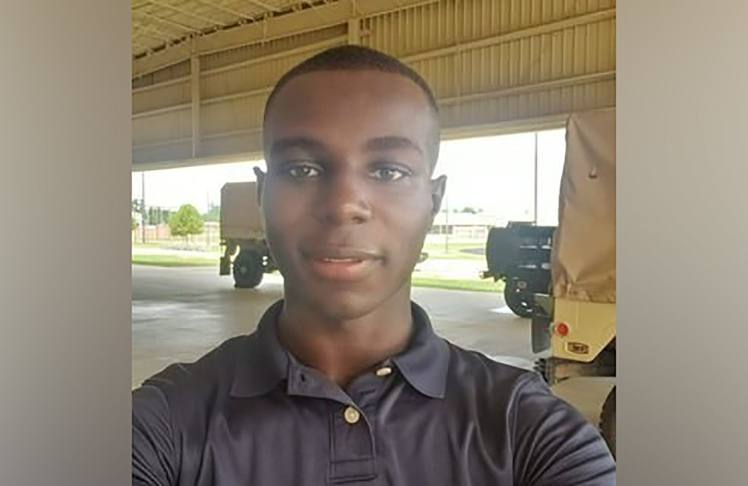
By Haley Britzky, CNN
(CNN) — With Army Pvt. Travis King back in the US after two months in North Korean custody, it’s unclear if he will face disciplinary actions for running across the demarcation line into North Korea.
Experts say it’s possible King could be charged under the Uniform Code of Military Justice – possibly under Article 85 for desertion or Article 86 for going Absent Without Leave, or AWOL. But it’s unclear if the Army will take that step.
Army Secretary Christine Wormuth said Tuesday that any punishment King could face would come from his chain of command after he completes the reintegration process at Brooke Army Medical Center in San Antonio, Texas.
“Right now, we’re really focused on the reintegration process for Pvt. King … We will get to the point where the chain of command will decide sort of what consequences he’ll be facing in terms of the things that have happened, but we’re not at that point right now,” Wormuth said.
Before running into North Korea in July, King had already faced criminal charges and was court martialed by the Army in South Korea. CNN previously reported that King was expected to be administratively separated from the military after being found guilty in a court martial hearing related to assault and other charges.
The day before King crossed into North Korea, he was expected to board a flight from Seoul back to the US. Instead, officials told CNN King joined a tour of the Joint Security Area inside the demilitarized zone, later running from the group to North Korea’s side of the demarcation line.
Now, King is on temporary duty orders to Joint Base San Antonio as he completes the reintegration process, which Army spokesperson Bryce Dubee said includes “medical care, decompression, and debriefing.” King was reunited with his family over the weekend, Dubee added.
“The reintegration is the DoD process of coordinating multiple activities with a recovered person,” Dubee said, “while protecting their health and welfare, with the goal of returning a physically and emotionally healthy DoD member to duty as expeditiously as possible.”
A spokesperson for King and his family declined to comment.
Rachel VanLandingham, a retired Air Force judge advocate and military law expert at Southwestern Law School, told CNN that she’d be surprised if the Army doesn’t court martial King for running over the border, though sending a deterrence message is often a factor in decisions to bring charges.
In this case, she said, that likely isn’t necessary.
“Do we really think there are a lot of soldiers who are going to sprint across to North Korea … 99.99% of soldiers don’t need to be deterred from doing this,” she said.
Army may want to avoid a full trial
Mark Cancian, a retired Marine Corps colonel and senior advisor at the Center for Strategic and International Studies, said the Army will likely “just want to get rid of him” and not go through the efforts of a full trial.
“If they if they were going to do another trial, they have to assign them to a unit wherever he is … he’d have to go to work every day for however long it took to get the court martial together, and then hold the court martial, and then have all the materials reviewed because all that has to go to headquarters of the Army, so could be six months, could be longer,” Cancian said.
Another factor in the Army’s potential decision with King could be what information he’s able to provide on North Korea.
VanLandingham pointed to the case of Bowe Bergdahl, who pleaded guilty in 2017 to desertion and misbehavior before the enemy after he walked off post in Afghanistan in 2009 and was captured by the Taliban. Officials who debriefed Bergdahl when he returned to US custody emphasized in his trial how cooperative he was in sharing information about the Taliban and his time in their custody.
An official from the Pentagon’s Joint Personnel Recovery Agency testified that Bergdahl was an “extremely cooperative participant” in his debriefs after returning to the US. One intelligence analyst described the information he provided to the US as “a gold mine.”
“Those are factors that could impact court-martial – what he’s doing right now and how cooperative he is with folks he’s debriefing with on the intelligence side,” VanLandingham said.
Cancian said, however, it’s “unlikely” King had any intelligence that would be of particular value given that he “wasn’t there for very long.”
Ultimately, Cancian said, referring King to a court-martial would require the Army to keep him around longer.
“I just don’t think they want this guy around,” Cancian said, referencing the misconduct issues King had in South Korea. “My guess is they’re going to process him out as quickly as they can.”
The-CNN-Wire
™ & © 2023 Cable News Network, Inc., a Warner Bros. Discovery Company. All rights reserved.















